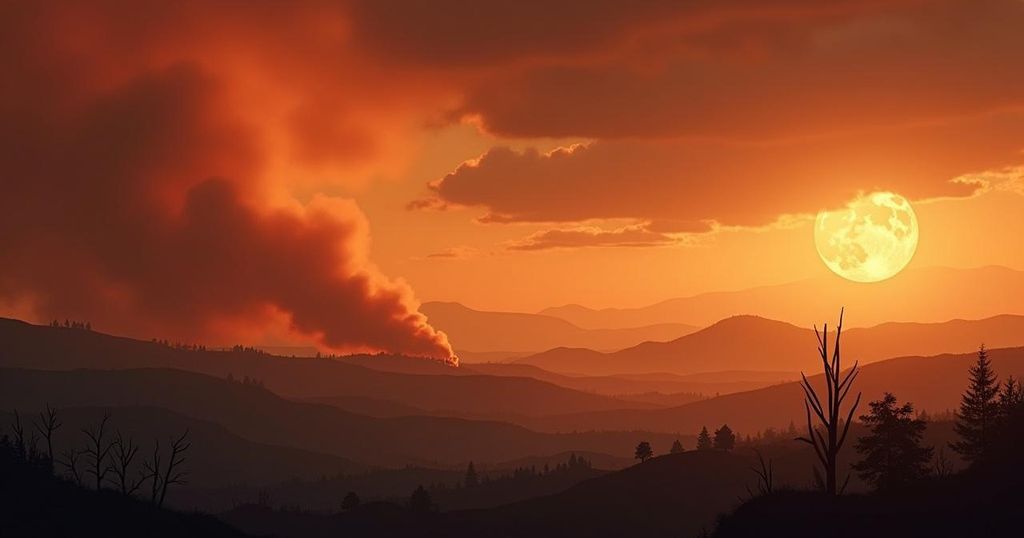South America is engulfed in a wave of catastrophic wildfires, largely driven by human activity, exacerbated by severe drought conditions linked to the El Niño phenomenon and climate change. The Amazon rainforest, particularly in Brazil, is heavily affected, with substantial impacts on health, biodiversity, and indigenous communities. Immediate action and collective responsibility are essential to mitigate this environmental crisis.
The region of South America, particularly the vast Amazon rainforest in Brazil, is currently facing an unprecedented environmental crisis as wildfires ravage the land. The picturesque skies of Rondônia, a state in the Amazon, have transformed from their traditionally clear blue hue to a suffocating gray shroud of smoke. These fires are largely man-made, linked to agricultural practices that prioritize land clearing through burning. They affect not only Brazil but extend to neighboring countries such as Ecuador, Paraguay, and Bolivia, where extensive areas of forest have succumbed to flames, accelerated by an extreme drought influenced by climate change and the El Niño phenomenon. In the city of Porto Velho, government facilities are overwhelmed with patients suffering from respiratory issues due to the toxic air quality, resulting from the extensive smoke. Health Secretary Marilene Penati described the situation as dire, noting the significant distress experienced by the residents. Dr. Lilian Samara de Melo Lima, a local physician, echoed these sentiments, indicating that the wildfires this year have reached alarming levels, largely attributed to reckless land management practices. The devastation spans across South America, severely impacting various ecosystems and indigenous peoples, particularly those in the Chaco forest of Paraguay and the highlands of Peru. Reports indicate that fires have decimated spaces essential for the survival of uncontacted Ayoreo nomads, raising concerns over their food sources and livelihood. As the crisis escalates, officials in several countries are declaring states of emergency, responding to the disastrous consequences of the fires. Peruvian Prime Minister Gustavo Adrianzén’s comments suggesting that traditional practices were to blame have sparked criticism, as experts argue that most fires were intentionally set for agricultural expansion. The alarming data indicates that millions of hectares of forest have been lost, prompting urgent calls for collective action to combat this critical situation. The collective sentiment among health professionals and environmental scientists is clear: immediate and cohesive action is required to address the root causes of this calamity and protect the delicate balance of our planet’s ecosystems.
The Amazon rainforest, often referred to as the lungs of the Earth, is undergoing catastrophic changes due to rampant deforestation and wildfires, primarily attributed to agricultural development and climate change. This situation has been exacerbated by the El Niño weather phenomena, which bring about severe drought conditions across the continent, creating an environment conducive to wildfires. Countries throughout South America are witnessing the consequences, which include health crises from poor air quality, loss of biodiversity, and threats to indigenous communities. Understanding these factors is critical to addressing the issues related to land management and environmental protection in this vital region.
In conclusion, the fires consuming vast stretches of South America symbolize a broader environmental crisis that requires immediate attention and a coordinated response on both national and international levels. The adverse health effects and ecological disasters emerging from these wildfires highlight the urgent need for sustainable land management practices and serious commitments to address climate change. As acknowledged by local health officials, the Earth is indeed “crying out for help,” emphasizing our responsibility to listen and act decisively to safeguard our planet for future generations.
Original Source: www.theguardian.com






